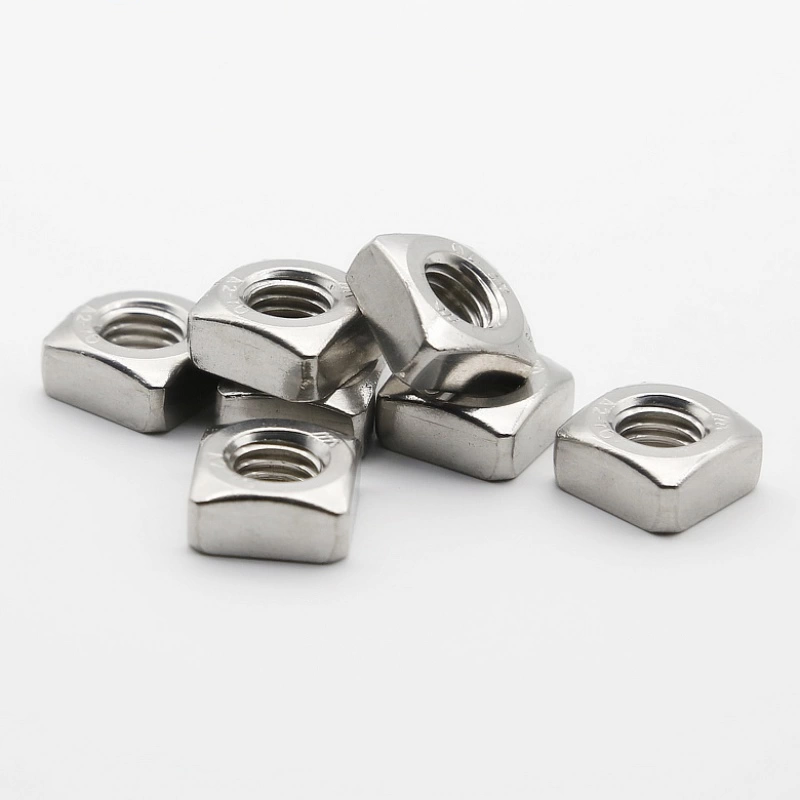

different types of nuts and bolts
Oct . 21, 2024 16:10 Back to list
different types of nuts and bolts
Different Types of Nuts and Bolts
Nuts and bolts are essential fasteners in various applications, ranging from home improvement to industrial machinery. Understanding the different types available can help you choose the right components for your specific needs. In this article, we will explore the various types of nuts and bolts, their applications, and their unique characteristics.
Bolts
Bolts are long fasteners with a head on one end and threads on the other, designed to be fitted with nuts. The most common types of bolts include
1. Hex Bolts These are characterized by their hexagonal heads and are used in a wide range of construction and repair applications. They are ideal for situations where high torque is required.
2. Carriage Bolts Recognized by their rounded, domed heads, these bolts have a square neck that prevents rotation when tightened. They are often used in wood applications, such as securing wooden beams.
3. Lag Bolts Also known as lag screws, these are heavy-duty bolts used for fastening large wooden components together. They are thicker than regular bolts and require a pre-drilled hole.
4. Eye Bolts Shaped like a loop, eye bolts provide a secure point for lifting and pulling. They are commonly used in industrial and marine applications.
5. Shoulder Bolts These bolts have a smooth, unthreaded shoulder that serves as a pivot point, making them ideal for mechanical devices.
different types of nuts and bolts

Nuts
Nuts are hexagonal blocks with a hole in the center that is internally threaded to fit onto a bolt. Different types of nuts cater to varying applications
1. Hex Nuts The most common nut type, hex nuts are used with hex bolts and have a hexagonal shape for wrench tightening.
2. Lock Nuts Designed to prevent loosening due to vibration, lock nuts use various mechanisms, such as nylon inserts or serrated edges, to maintain a tight grip.
3. Wing Nuts These nuts have two large wings that allow for hand tightening without tools. They are commonly used in applications requiring frequent assembly and disassembly.
4. Cap Nuts Also known as acorn nuts, these nuts have a rounded end that covers the exposed end of the bolt, providing a finished look and protecting the threads from damage.
5. T-Nuts Used primarily in woodworking, T-nuts have prongs that dig into the wood, creating a secure attachment point for bolts.
In conclusion, understanding the various types of nuts and bolts available can greatly enhance your ability to select the right fasteners for any job. Each type serves a unique purpose, and careful consideration of their characteristics ensures that your projects are safe and effective. Whether you are a DIY enthusiast or a professional, having a good grasp of these fasteners is invaluable.
Latest news
-
High-Strength Hot-Dip Galvanized Bolts-Hebei Longze|Corrosion Resistance&High Strength
NewsJul.30,2025
-
Hot Dip Galvanized Bolts-Hebei Longze|Corrosion Resistance&High Strength
NewsJul.30,2025
-
Hot Dip Galvanized Bolts - Hebei Longze | Corrosion Resistance, High Strength
NewsJul.30,2025
-
High-Strength Hot Dip Galvanized Bolts-Hebei Longze|Corrosion Resistance, Grade 8.8
NewsJul.30,2025
-
Hot Dip Galvanized Bolts-Hebei Longze|Corrosion Resistance,High Strength
NewsJul.29,2025
-
High-Strength Hot Dip Galvanized Bolts - Hebei Longze Metal Products Manufacturing Co., Ltd.|corrosion resistance&high strength
NewsJul.29,2025

